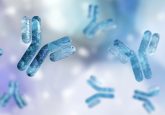What is toxicology?
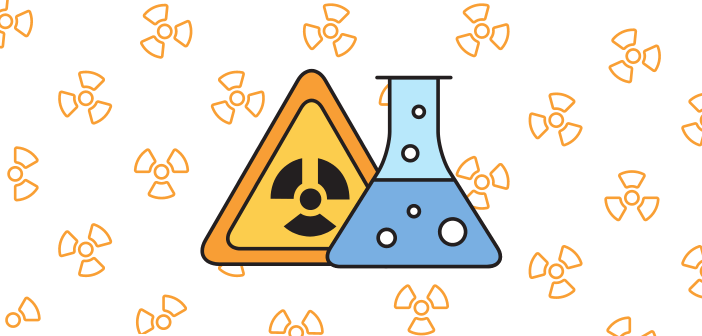
What is toxicology?
In essence, toxicology is a scientific discipline focused on understanding the adverse effects of any chemical, biological and physical agent on living organisms. Every substance possesses the potential to be toxic to humans and other organisms under specific conditions and at particular doses or concentrations. Toxicologists assess and analyze the doses and exposure methods that make these substances hazardous and develop detection techniques in various samples [1]. They also work on seeking effective treatments for animals and individuals who have been exposed to toxic substances.
The scope of toxicology encompasses the examination of natural chemical compounds, environmental agents and pharmaceuticals intended for medical use. These substances can detrimentally impact living organisms, potentially causing discomfort, growth abnormalities, illness and even fatality [2].
Intersecting chemistry, biology, environmental science and pharmacology, toxicology stands as a multidisciplinary field crucial for public health. Unlike pharmacology, which primarily focuses on therapeutic effects of substances and how drugs can improve health, toxicology emphasizes understanding the harmful effects and reducing adverse health outcomes across populations [3].
The choice of bioanalytical assay for toxicology tests is determined by the type and purpose of the test. For instance, in vitro methods like the micromass embryotoxicity assay are used to study developmental toxicity. For genetic toxicity testing, chromatid exchange assays or translocation assays are employed [4]. Toxins can be evaluated either qualitatively or quantitatively. Quantitative analysis techniques commonly employed in toxicology include infrared spectroscopy, high-pressure liquid chromatography, gas chromatography and immunoassays [5].
The importance of dose
- Individual responses: Variability exists in individual responses to substances due to factors like exposure amount, age and susceptibility. Certain life stages, like early childhood or adolescence can heighten vulnerability to chemical exposure as the brain is still developing [1,7].
- Paracelsus’ principle: Often referred to as the ‘father of modern toxicology’, Paracelsus famously stated, “only the dose makes the poison.” In toxicology, the dose of a substance is the primary criterion for classifying a substance’s toxicity, reflecting the extent of an individual’s exposure. Essentially, any substance can be toxic under specific conditions and at certain doses [3].
- LD50 explained: LD50 is a common term in toxicology signifying the dose of a substance that is lethal to 50% of a test population [3]. Toxicity levels are typically determined by using animal models like rats, with findings extrapolated for human use.
- Dose-toxicity relationship: While conventional wisdom suggests a direct correlation between chemical exposure and toxicity risk, studies on endocrine disruptors have challenged this notion. The relationship between exposure and toxicity may not always follow a straightforward pattern of greater exposure equating to higher risk of toxicity, as evidenced by these findings [2,7].
There are multiple subtypes of toxicology, including:
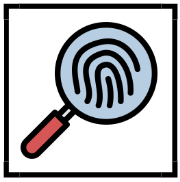
Forensic toxicology: Forensic toxicologists apply toxicology methods within legal frameworks, assisting in criminal investigations by determining causes of death and examining substances implicated in crimes. They can also conduct drug tests in various settings, collaborating closely with forensic teams and law enforcement authorities [1].
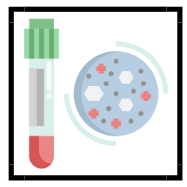
Medical toxicology: Medical toxicologists investigate the adverse effects of drugs and medical interventions on humans, establishing safe dosage parameters and exposure guidelines. Their expertise encompasses areas such as drug abuse, chemical exposures, poisonings and the effect of venom from animal stings and bites [1].
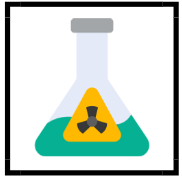
Chemical toxicology: This subspecialty focuses on the chemical structure of agents and their mechanisms of action on living organisms, integrating disciplines such as proteomics, drug metabolism, analytical chemistry, computational chemistry, metabolomics, biological chemistry and bioinformatics.
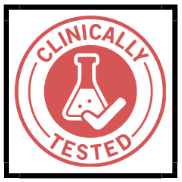 Clinical toxicology: Clinical toxicology involves researching, preventing and treating diseases arising from chemical, drug and toxin exposure. Particular focus is given to the extent of chemical exposure and its potential impacts on individuals [6].
Clinical toxicology: Clinical toxicology involves researching, preventing and treating diseases arising from chemical, drug and toxin exposure. Particular focus is given to the extent of chemical exposure and its potential impacts on individuals [6].
 Aquatic toxicology: Aquatic toxicology studies the impact of chemicals and other materials on aquatic life, examining effects at various levels from subcellular and individual organisms to communities and ecosystems [6]. They are involved in tracking trends, diagnosing damage, guiding corrective efforts and predicting ecological impacts of human actions.
Aquatic toxicology: Aquatic toxicology studies the impact of chemicals and other materials on aquatic life, examining effects at various levels from subcellular and individual organisms to communities and ecosystems [6]. They are involved in tracking trends, diagnosing damage, guiding corrective efforts and predicting ecological impacts of human actions.
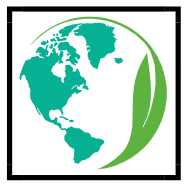 Environmental toxicology: Environmental toxicologists scrutinize the interactions between substances and the environment, evaluating potential human health repercussions from exposure to environmental toxins such as microplastics or increased mercury levels in fish [1].
Environmental toxicology: Environmental toxicologists scrutinize the interactions between substances and the environment, evaluating potential human health repercussions from exposure to environmental toxins such as microplastics or increased mercury levels in fish [1].
 Regulatory toxicology: Regulatory toxicologists establish rules and ensure compliance for product registration and permissible concentrations in food or environmental media. They balance scientific toxicity evidence with legal, political and technical considerations to ensure public safety and environmental protection [6].
Regulatory toxicology: Regulatory toxicologists establish rules and ensure compliance for product registration and permissible concentrations in food or environmental media. They balance scientific toxicity evidence with legal, political and technical considerations to ensure public safety and environmental protection [6].
 Occupational toxicology: Occupational toxicologists apply toxicology principles to address chemical and biological hazards encountered in the workplace [6].
Occupational toxicology: Occupational toxicologists apply toxicology principles to address chemical and biological hazards encountered in the workplace [6].
What are the uses of toxicology and why is it important?
Toxicology has vital real-world applications that significantly impact public health, safety and well-being. One of the most important applications of toxicology is that it delivers essential information and insights that regulatory bodies and legislators can use to establish programs and policies aimed at restricting subjection to harmful substances, therefore avoiding or minimizing the risk of diseases and other negative health effects [7]. This scientific basis enables governments to create health-protective regulations, companies to design safer products and consumers to make informed health decisions.
Some other critical uses of toxicology are to:
- Reduce lead exposure: Despite widespread awareness of its dangers, lead poisoning is a continuous issue due to its prevalent use in multiple industries. Exposure to lead in dust from aging paint or contaminated soil poses significant harm for children as it can cause cognitive and developmental risks. While government interventions such as bans and screening initiatives have mitigated lead poisoning to some extent, continuous research and protective measures are imperative [8].
- Protect health and the environment: Toxicologists play a pivotal role in advancing safer medicines and products, evaluating risks associated with toxic exposure, and devising treatments for those affected. They ensure the safety of food and water supplies, providing essential insights for regulatory agencies and policymakers to implement safeguarding measures and protective policies [7].
- Create toxicology reports to aid in legal and medical contexts: These reports provide detailed information on patient data, samples, testing methods, lab results and findings interpretation. They can be used to identify substances in cases like custodial battles involving suspected drug or alcohol use, suspected poisonings, drug-related crimes, therapeutic drug monitoring, drunk driving incidents and post-mortem analyses [1].
Further reading:
Society of Toxicology Annual Meeting and ToxExpo 2024 – Bioanalysis Zone (bioanalysis-zone.com)


